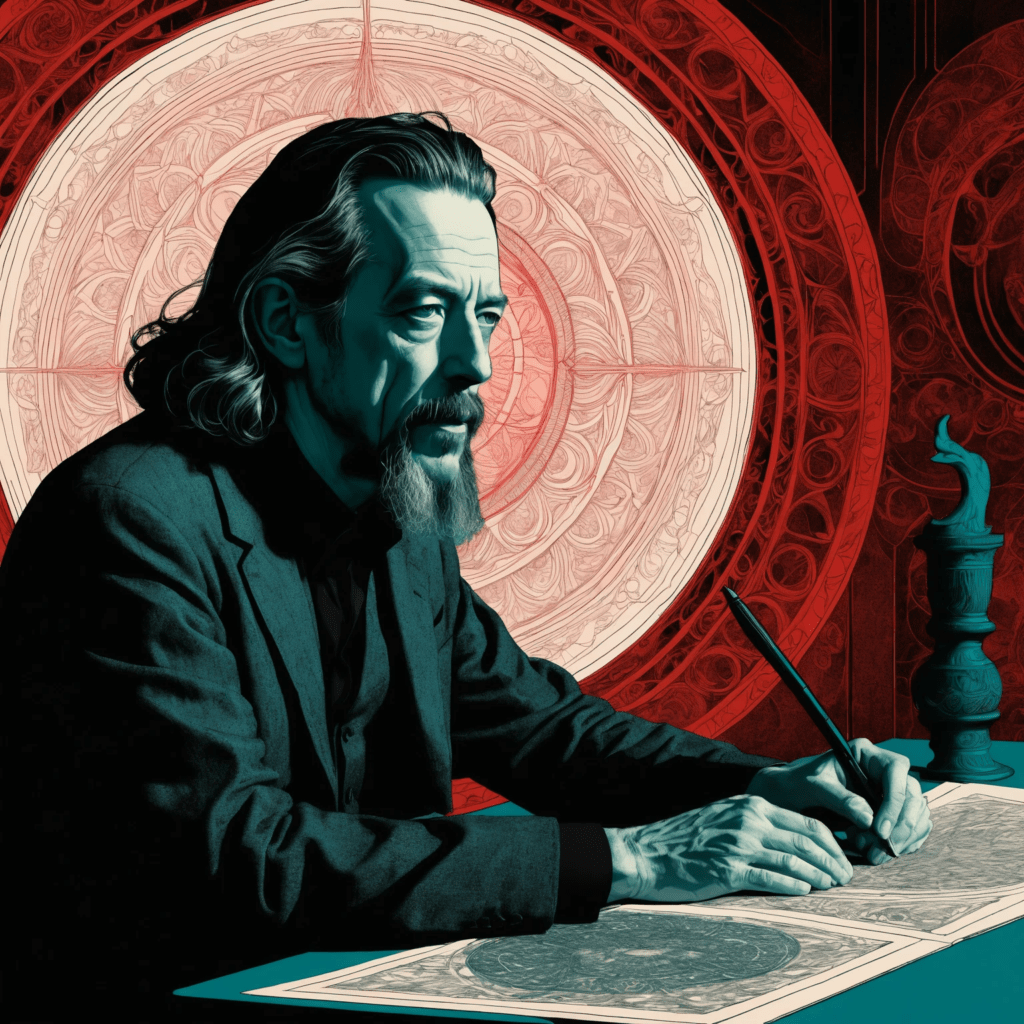
Dare to believe in your own divinity
Discover the wisdom of Swami Vivekananda, the Cyclonic Monk who awakened the world to the power of Vedanta and the unity of all religions. His timeless teachings offer a path to self-discovery and liberation.


Alan Wilson Watts, a British-born philosopher, writer, and speaker, embarked on a lifelong quest to bridge the gap between Eastern and Western thought. Watts became a countercultural icon, introducing Zen Buddhism, Taoism, and other Eastern philosophies to a Western audience hungry for meaning beyond materialism. He challenged conventional notions of self, religion, and reality with wit and wisdom, advocating for a more playful and less rigid approach to life. His lectures and writings were a refreshing blend of scholarly insight and humorous anecdotes, making complex philosophical concepts accessible and engaging.
Popularized Eastern philosophy in the West.
Authored numerous influential books (e.g., The Way of Zen, The Book on the Taboo Against Knowing Who You Are).
Inspired the counterculture movement of the 1960s.
Challenged conventional views on religion, self, and society.
Influenced fields of psychology, spirituality, and philosophy.
Watts’ work continues to resonate with contemporary audiences seeking alternative perspectives on spirituality, mindfulness, and the nature of reality. His teachings on the interconnectedness of all things align with modern ecological awareness and systems thinking. In the field of psychology, his ideas have influenced the development of mindfulness-based therapies and transpersonal psychology.
Watts emphasized the illusion of the separate self, a core tenet of non-dual philosophies. He urged individuals to recognize their interconnectedness with the universe and embrace the ever-changing flow of existence. This perspective aligns with the Unalome Project’s emphasis on transcending limiting beliefs and embracing the totality of being. Living in the present moment is the key to self-realization.

“Trying to define yourself is like trying to bite your own teeth. To understand the self is to forget the self. But to know what there is no self, is not to know what you are as the self. This, as they say, is the great breakthrough. This, also, is the great blockade.”
Watts’ teachings encourage us to question our assumptions about ourselves and the world, to embrace the present moment, and to find joy in the dance of existence. This aligns perfectly with the Unalome Project’s mission of fostering self-discovery and radical transformation through a deeper understanding of our true nature.
The Way of Zen by Alan Watts
The Book: On the Taboo Against Knowing Who You Are by Alan Watts
In My Own Way: An Autobiography by Alan Watts
Watts, Alan. The Way of Zen. Pantheon Books, 1957.
Watts, Alan. The Book: On the Taboo Against Knowing Who You Are. Pantheon Books, 1966.
Watts, Alan. In My Own Way: An Autobiography. Pantheon Books, 1972.

Discover the wisdom of Swami Vivekananda, the Cyclonic Monk who awakened the world to the power of Vedanta and the unity of all religions. His timeless teachings offer a path to self-discovery and liberation.

Dive into the luminous wisdom of Adi Shankara, mystic & philosopher who ignited a revolution in non-duality. His teachings echo across centuries, inviting you to question illusions, realize oneness, and find liberation within. Discover his legacy and apply his timeless tools on your own path to self-discovery.

Jim Morrison, a Dionysian poet disguised as a rock star, explored themes of freedom and the subconscious, inspiring generations to question societal norms and seek authentic experience.
Get In Touch
T3, Linea Orchid, Green Park Layout, Bengaluru 560 043, Karnataka INDIA
info@unalomeproject.com
+91 98865 51029
Hours: Mon-Fri 9:00AM – 6:00PM